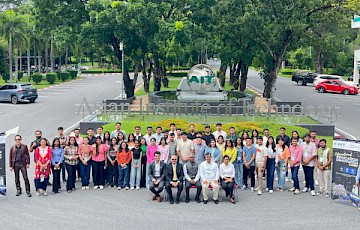22 September 2021
Professor Moumita Roy receives NSF Grant for Research on Group Identity in Leadership Effectiveness
Investigators:
Daniel Houser, George Mason University
Moumita Roy, Ahmedabad University
Funding Agency: National Science Foundation, USA
Understanding the role of leaders in mitigating cooperation failures in groups especially when group members have distorted incentives is a relevant issue in economics. This research project will use economic theory and experimental methods to study whether beliefs and decisions of group members vary according to whether the leader shares the same group identity as the followers. The project will combine insights from behavioral economics, social psychology, leadership, and management studies to compare the effectiveness of ingroup and outgroup leaders. Social identity theory suggests that a shared group identity between leaders and followers could increase trust in an ingroup leader's effectiveness in fostering cooperation. The research design will investigate whether ingroup bias can lower overall cooperation and efficiency in groups with outgroup leaders. Ingroup bias can become a challenge for effective diverse leadership. This research will help fill gaps in knowledge of the detrimental effects of ingroup bias and will have broad impacts on the study of leadership. Further, the results of this research project will shed light on identity-based discrimination which can provide important inputs into policies that improve diversity and inclusion in leadership.
In a novel laboratory experimental design, the project uses identity manipulations within a leadership game. Groups play a public goods game where the leader encourages cooperation within each group following a two-fold identification strategy which creates artificial group identities. Laboratory subjects acting as followers decide whether to follow a leader’s cooperation suggestion in a group task. The main hypothesis is that the ingroups will exhibit favoritism towards ingroup leaders and discrimination against outgroup leaders. The difference in a group’s cooperation levels under ingroup and outgroup leadership will help in isolating the effects of shared group identity on leadership effectiveness. By extending this to a second study where the leaders use a reward mechanism to incentivize higher cooperation, it can be observed whether a reward mechanism can bridge the gap between ingroup and outgroup leadership effectiveness.
The project makes two contributions: It provides an interdisciplinary approach to studying the interaction effects of group identity and leader effectiveness. Second, the results will allow researchers to understand the ramifications of shared social identities between leaders and followers and prevent the negative consequences that may arise out of the lack of inclusion of diverse leaders. Overall, the results will have policy implications for both organizations and policy makers.



